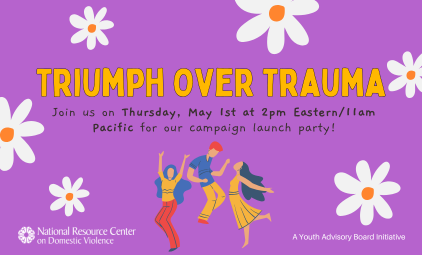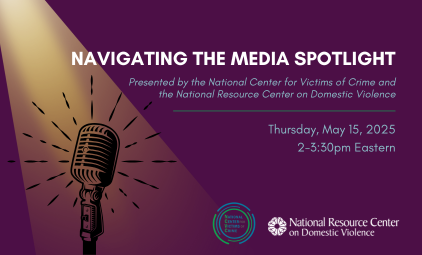With Domestic Violence Awareness Month (DVAM) behind us, the question is: how can we motivate our communities to stay involved? Domestic violence awareness goes beyond a purple ribbon and a powerful speech. It’s more than the poster, the walk, and the candlelight vigil. Domestic violence awareness is the ability to change people’s mindsets about its very nature and impact on all of us, and to inspire passion for social change long after DVAM comes to an end.
VAWnet News Blog
For Domestic Violence Awareness Month and beyond, the National Resource Center on Domestic Violence (NRCDV) wants to draw attention to the role of collective resilience as a transformative response to the violence and trauma experienced by our communities.
Reunification after child sexual abuse is a topic that can bring up intense feelings, but the reality is that many who are convicted of a crime and sent to jail or prison do eventually return to their homes and communities.
We know that sexual violence affects every nation, population, and culture. But conflict and displacement can heighten vulnerabilities and diminish protective factors, increasing refugees’ and asylum seekers’ risk of experiencing sexual violence while decreasing or interrupting their access to vital survivor services.
On a daily basis, advocates are exposed to trauma through the stories of the survivors that we work with – whether the stories are heard in person, in writing, over the phone or through social media. Constant exposure to any type of trauma can take a toll on an advocate’s well-being. As advocates, we carry these stories in our hearts and usually do not realize that we are also carrying the effects of compassion fatigue.
As advocates working in the sexual violence prevention and intervention field, we know that all forms of oppression are linked (racism, classism, ableism, sexism, etc.). This is why it is important for service providers to understand the issues that intersect and have a huge impact on what survivors of sexual violence face in order to help them in their journey.




















